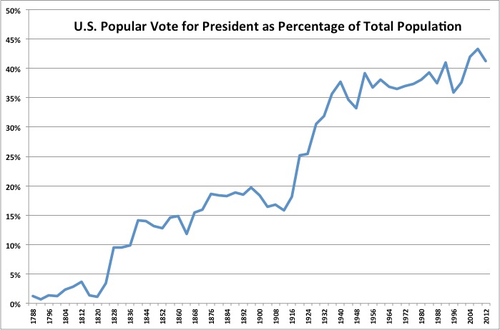By: Lester Williams
Everyone should have the power to vote, but not everyone wishes to take advantage of that power, and that’s an individual’s choice.
For centuries many human societies have put their faith in voting to decide the best outcome. The majority rules vote has been one of the easiest ways for a group or even an entire nation to come to a fair decision.
In America, it took African-Americans until 1870 to be given the right to vote, and women had to wait until 1920 to be given their chance to vote. Now in 2018, you can find people of all types that don’t want to vote.
They’ll always be a minority of citizens that don’t care about the outcome of a vote and others who lack the time and energy to put in the right amount of thought into their vote, so why should they even vote?
Mandatory voting can get more people to vote, but it will not get that many more people to care.
Making voting a requirement for eligible citizens may lead to results that do not reflect the majority of the nation, as some people will vote randomly.
While voting should be a right and not a law, it is understandable why nations would want to make it mandatory. Having a few more people vote can easily change the winner of an election.
In 2016 America had less than 60 percent of eligible voters placed their vote for the presidential election because there was no law which made voting mandatory.
This is unlike Australia where voting became mandatory in 1925, and since then eligible voters who turn up have not dropped below 90 percent.
However, the problems with mandatory voting still out weight having it.
One of the biggest problems is uninformed voters who don’t care about an election and who don’t do proper research can be easily manipulated to choose one candidate over the other.
An example of a misconception that the average U.S. voter may not be aware of is that in the U.S. just having more votes doesn’t mean you become president.
Instead, America uses a voting system created by the Founding Fathers known as the Electoral College which dates back to the 18th century.
The way the system works is that each American state has some electors who are the people that vote for President and Vice President. There is a total of 538 electors and to become president, a candidate has to win add least 270.
To win a state’s electors vote, a candidate has to win the popular vote in each state. But even this is still an unfair system as each state has their amount, of electors, an example is California has the most at 55 while North Dakota only has three.
This system, because of its imbalance in power between states, goes against majority rules.
This can be a good thing because it helps to prevent an election being decided by people voting randomly or who have been manipulated and it’s a bad thing since it takes power away from the people.
The Electoral College voting system has greatly affected American history multiple times.
For example, in the year 2000 presidential candidate, Al Gore won more votes than his competitor George W. Bush, yet Bush won because he got more electoral votes.
If a country does not use a majority rules vote in their election, should it matter how many people across a nation vote?
Mandatory voting may not change anything. No matter what kind of system a nation uses to decide their demographic leader, someone will walk away unsatisfied with the results and whoever is leading a nation will be criticized to some degree.
A recent example is when Donald Trump became president in 2016. Even before a winner was announced, thousands of people protested against him across America including Los Angeles, Boston and Chicago.
While Trump has many supporters, the protest continued when he won proving an election no matter the outcome shall lead to conflict.
It might be best just to allow people who are passionate and who will commit to doing the right amount of research to vote for the candidate they most side with.





